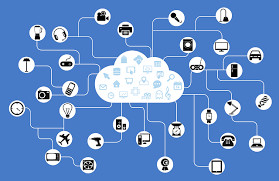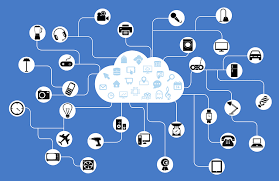
The lines between who ultimately controls your phone, or computer, car or appliance: you, or the companies that make it work were further blurred when Samsung Electronics remotely disabled the last of its flawed Galaxy Note 7 smartphones last month.
Though not always with permission or with the user's best interests at heart, how and whether they work is changed, software and content are added or removed, or collecting personal data from them are being done by companies who are exerting greater remote control over their devices, industry executives and analysts say.
"(The Samsung case) is exactly an example of how devices ... are no longer objects we own, but rather services we've subscribed to and which can be revoked at a moment's notice," said Stefano Zanero, an Italian computer security expert.
Hoping there's no recall to a world where they are in touch with users through internet-connected devices that they can "change, modify, adjust" as they see fit, manufacturers have moved on from just selling a device, said Mahbubul Alam, chief technology officer at Movimento, a car tech firm now owned by Delphi Automotive.
"With power comes responsibility," he adds. "It's a new power that the device manufacturers and telcos have. How they exercise their responsibility is very important."
Of the more than three million Note 7s it had sold and activated, it retrieved 96 percent, Samsung said.
"We assume the majority of unreturned devices are not actually used," said a spokesperson for the South Korean firm.
To prevent unauthorized cartridges being used with some of its printers HP Inc last year used a software update. HP offered an optional update after some users complained. HP did not respond to requests for comment.
To stop people using their devices in ways they don't want, manufacturers use so-called firmware updates in other cases.
Bunnie Huang, a hardware entrepreneur said that to outwit users' attempts to open up the software to unapproved apps and functions - dubbed jailbreaking, Apple routinely upgrades the firmware on iPhones.
Gadget makers increasingly realize that connected products are only as good as the software on them, says Bryan Hale of Resin.io, which distributes software updates to connected devices. That means they can't afford not to figure out how to update that software. The pitfalls of not keeping devices updated is highlighted by the hacking attacks on appliances like CCTV and webcams.
At the other extreme, using over-the-air updates to collect user information and push services and apps on to their devices, some companies see this channel to the device as a marketing opportunity.
After a security company found it installed software on thousands of mobile devices that collected data without users' permission, Chinese firm Shanghai ADUPS Technology faces two class-action suits in the United States. One suit alleges the software "could also remotely reprogram the devices and install applications on consumers' phones without their knowledge or consent."
There were no comments available from ADUPS Technology.
Companies see advantages in being able to retain some degree of remote control whatever the motivation.
car companies are coming to terms with the changes wrought by Tesla, which pushes updates and features to its cars wirelessly, removing the need for dealers and the economics of the car industry are not unlike those of the mobile sector, says consultant Michael Sena.
Here the issue of privacy drops up.
European Union law will effectively mean "if I own a device, what happens with that device is up to me" and will next year be more stringent on data protection, Sena says.
"What's needed here is oversight," said Bryce Boland, Asia-Pacific chief technology officer at FireEye, an internet security company.
"Some cases may be legitimate, such as devices that need to be modified to prevent forest fires or human deaths; others might be more difficult to assess."
(Source:www.reuters.com)
Though not always with permission or with the user's best interests at heart, how and whether they work is changed, software and content are added or removed, or collecting personal data from them are being done by companies who are exerting greater remote control over their devices, industry executives and analysts say.
"(The Samsung case) is exactly an example of how devices ... are no longer objects we own, but rather services we've subscribed to and which can be revoked at a moment's notice," said Stefano Zanero, an Italian computer security expert.
Hoping there's no recall to a world where they are in touch with users through internet-connected devices that they can "change, modify, adjust" as they see fit, manufacturers have moved on from just selling a device, said Mahbubul Alam, chief technology officer at Movimento, a car tech firm now owned by Delphi Automotive.
"With power comes responsibility," he adds. "It's a new power that the device manufacturers and telcos have. How they exercise their responsibility is very important."
Of the more than three million Note 7s it had sold and activated, it retrieved 96 percent, Samsung said.
"We assume the majority of unreturned devices are not actually used," said a spokesperson for the South Korean firm.
To prevent unauthorized cartridges being used with some of its printers HP Inc last year used a software update. HP offered an optional update after some users complained. HP did not respond to requests for comment.
To stop people using their devices in ways they don't want, manufacturers use so-called firmware updates in other cases.
Bunnie Huang, a hardware entrepreneur said that to outwit users' attempts to open up the software to unapproved apps and functions - dubbed jailbreaking, Apple routinely upgrades the firmware on iPhones.
Gadget makers increasingly realize that connected products are only as good as the software on them, says Bryan Hale of Resin.io, which distributes software updates to connected devices. That means they can't afford not to figure out how to update that software. The pitfalls of not keeping devices updated is highlighted by the hacking attacks on appliances like CCTV and webcams.
At the other extreme, using over-the-air updates to collect user information and push services and apps on to their devices, some companies see this channel to the device as a marketing opportunity.
After a security company found it installed software on thousands of mobile devices that collected data without users' permission, Chinese firm Shanghai ADUPS Technology faces two class-action suits in the United States. One suit alleges the software "could also remotely reprogram the devices and install applications on consumers' phones without their knowledge or consent."
There were no comments available from ADUPS Technology.
Companies see advantages in being able to retain some degree of remote control whatever the motivation.
car companies are coming to terms with the changes wrought by Tesla, which pushes updates and features to its cars wirelessly, removing the need for dealers and the economics of the car industry are not unlike those of the mobile sector, says consultant Michael Sena.
Here the issue of privacy drops up.
European Union law will effectively mean "if I own a device, what happens with that device is up to me" and will next year be more stringent on data protection, Sena says.
"What's needed here is oversight," said Bryce Boland, Asia-Pacific chief technology officer at FireEye, an internet security company.
"Some cases may be legitimate, such as devices that need to be modified to prevent forest fires or human deaths; others might be more difficult to assess."
(Source:www.reuters.com)





